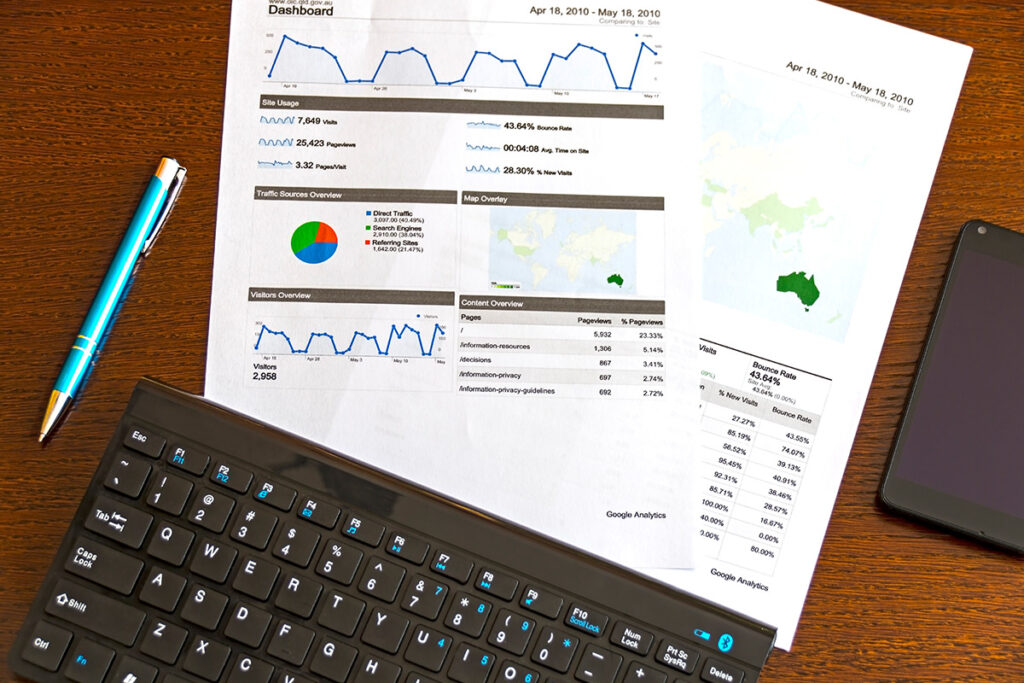At Maxcode, we constantly observe and analyze the global financial market and its trends in order to stay up-to-date with the latest developments and help our clients make informed decisions. In the wake of recent events, we have taken a closer look to understand how the financial ecosystem is impacted and prone to new disruption.
Introduction
The global financial crisis of 2008 led to an influx of innovation in the financial space, with the vast majority of fintech unicorns being founded (right) after it: Stripe (2010), Nubank (2013), Ripple (2012), Revolut (2015), Chime (2013), N26 (2013), Affirm (2012), Monzo (2015) or EBANX (2012). The extent to which the disruption generated by the coronavirus pandemic would lead to similar technological dynamics in the financial space remains to be seen as predicting the path ahead is nearly impossible, multiple dimensions of the crisis being unprecedented.
What is certain is that the world is going through an extreme economic shock that requires an ambitious, coordinated, and urgent policy reaction on all fronts to support people and companies at risk, as Christine Lagarde, President of The European Central Bank, points out.
As a large part of the economy is being switched off, the pressure on the cash flows puts the survival of companies and jobs at risk. Currently, many companies, even corporates, put strategic projects on hold to preserve their cash buffers in the face of falling demand. The European Commission already anticipates a severe backlash on the European economy, with a significant impact on GDP growth in 2020 and a potentially detrimental effect on European businesses, especially SMEs. The economic uncertainty sparked by the pandemic will likely cost the global economy $1 trillion in 2020, according to the UN’s trade and development agency, UNCTAD.

We are already seeing a major shift in KPIs, time-to-market being now the most prominent over others like conversion, uplift or scale. Companies are interested in the time needed to launch new initiatives to help them deal with the current situation, like moving from physical commerce to ecommerce or implementing new digital payment solutions. Business leaders will be making hard decisions with little data and few past examples to lean on. When the peril is diminished, more measures will be taken globally to streamline the way people pay and access financial services, as cash can easily be contaminated and going to the bank is not always a good option.
Governments, banks, companies and global organizations join the #FlattenTheCurve movement
Multiple organizations, companies, and banks around the globe have joined the effort to limit the spread of the virus when paying or accessing financial services. Some of the measures they take are centered on streamlining the access to financial services, minimizing the use of cash, and promoting the use of contactless payments. We see companies shifting a greater volume of payment transactions toward mobile money and away from cash, which the World Health Organization flagged as a conduit for the spread of the coronavirus. Previous studies have also shown that the human influenza virus can remain alive and infectious on banknotes for 17 days. As cash usage is decreasing in these circumstances, specialists also warn about the use of credit cards, which carry even more types of bacteria than coins or banknotes.

Here are some examples of actions that have been taken so far with the aim to protect people involved in financial-related activities:
- the Chinese Central Bank allocated new banknotes to reinforce cash supply in Hubei province and adopted special measures to disinfect the cash in circulation;
- South Korea’s central bank is quarantining banknotes for two weeks;
- the U.S. Federal Bank is quarantining US dollars repatriated from Asia for 7 to 10 days before redistributing them in the financial system;
- the European Banking Authority (EBA) supports issuing and acquiring payment service providers by removing their National Competent Authorities’ obligation to report by 31 March 2020 their readiness to meet the strong customer authentication requirements for ecommerce card-based transactions and encourages PSPs to increase, where possible, these limits up to the maximum thresholds of EUR 50 per transaction, as allowed under the Regulatory Technical Standards;
- the Spanish government approved draft legislation aimed at encouraging the digital transformation of the financial system through the establishment of a regulatory sandbox where businesses can trial innovative ideas and projects with real customers;
- Paytm and Indian Oil Corporation Limited (IOCL), the largest commercial oil company in India, signed an agreement to enable digital transactions across fueling stations in the country;
- H&M is limiting cash payments to certain tills;
- in Canada and the UK, Desjardins and Barclaycard increased the maximum accepted for contactless transactions, respectively from USD 100 to USD 250 from March 20 and from GBP 30 to GBP 45 from the first of April;
- Mastercard announced its commitment to enabling the increase in contactless payment limits across 29 European countries;
- Kenyan telco Safaricom is waiving fees for its M-Pesa mobile money service and is making P2P transactions of less than USD 10 free for the next 3 months;
- Nigeria-based venture Paga made fee adjustments, allowing merchants to accept payments from Paga customers for free.
Measures taken globally to counteract the impact of the crisis
The world’s economy could grow at its slowest rate since 2009 this year, according to the Organization for Economic Cooperation and Development (OECD). Big shifts in stock markets, where shares in companies are bought and sold, can affect many investments in pensions or individual savings accounts. The FTSE, Dow Jones, the Nikkei, and other trading platforms have all seen huge falls since the outbreak began. According to the New York Stock Exchange, stocks closed out their worst first quarter ever. The Dow had its worst overall quarter since 1987, while the S&P 500 had its worst overall quarter since 2008. Moreover, oil is at its lowest price since 2001 and Bitcoin (BTC) price has fallen below USD 6,000.

To counteract the effects of the imposed economic slowdown and help companies facing acute liquidity needs and/or bankruptcy due to the outbreak, several measures have been taken:
- the World Bank approved a USD 14-billion package of fast-track financing to assist companies and countries in their efforts to prevent, detect, and respond to the pandemic; the package would strengthen national systems for public health preparedness, including for disease containment, diagnosis, and treatment, and support the private sector;
- the US Federal Reserve, the Bank of England and other over 50 central banks globally (and the number is growing) have cut interest rates to make borrowing cheaper and encourage spending; the Fed has also launched a USD 700 billion stimulus program for the US economy;
- the European Central Bank has launched a new emergency EUR 750 billion package, the Pandemic Emergency Purchase Programme (PEPP), which comes days after the ECB unveiled initial measures that failed to calm markets;
- the Bank of Japan eased monetary policy by pledging to buy risky assets at double the current pace and announced a new loan program to extend one-year, zero-rate loans to financial institutions;
- the US have signed into law a USD 2 trillion stimulus package, the far-reaching legislation standing as the largest emergency aid package in US history and representing a massive financial injection with provisions aimed at helping American workers, SMEs, and industries grappling with the economic disruption.
What shifts are expected?
- Cash might go extinct sooner than we thought
As hand-to-hand exchange of physical currency could easily transmit the virus, companies and people around the world are being forced to reconsider the use of cash. This pandemic could be the catalyst for potential new digital payment use cases, bringing them fully into the mainstream. This circumstantial move away from cash might be perceived beneficial even by the digitally reluctant and cash savvy.
- Digital payment services gain more traction
Globally, many service providers such as banks or telecom operators have significantly reduced their offline operations and asked customers to consider the digital form for any type of assistance. Digital payment services are likely to emerge as solutions to other specific challenges within different national or global contexts, and the shift from contextual to broad usage could be just a matter of time.
- The adoption of central bank digital currencies (CBDC) is accelerated
Coupled with the impulse generated by Facebook’s Libra, this outbreak is also likely to accelerate central banks’ adoption of their own digital currencies. The People’s Bank of China, China’s central bank that runs China’s monetary policy, has explored for some time the replacement of physical cash with a digital analog. A few months ago, the head of the US Federal Reserve confirmed that the Reserve is also analyzing whether a digital currency makes sense for the US. Moreover, at the beginning of 2020, it was European Central Bank’s turn to show interest in expanding its role in developing central bank digital currencies, the subject of CBDCs being approached even during The World Economic Forum, at Davos. The Riksbank, Sweden’s central bank, also jumped in the CBDCs’ bandwagon, announcing in February the launch of a one-year-long, DLT-based pilot project of its proposed e-krona.
Most probably, these digital currencies will emerge as a viable alternative to analog cash, replicating the current financial system, bound to central banks, which are constantly in the mission to keep economies going. France is apparently the first to respond to the new wave of interest in CBDC. A few days ago, the Banque de France has announced a call for applications to experiment with a central bank digital currency for interbank settlements. This trend is worth watching as the extent to which the entire financial ecosystem will be impacted is complex and revolutionizing.




